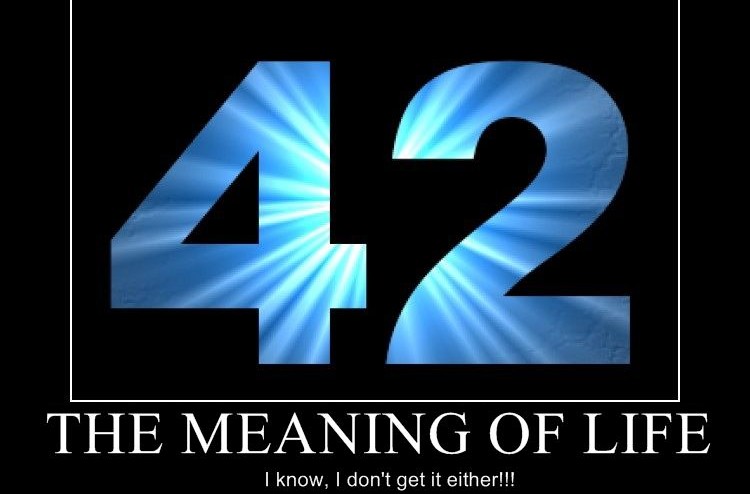
The Meaning of Life
It’s fairly easy, and a construct of existentialist philosophy.
There are two branches of explanation to the meaning of life. These are broken down into consequences and content. Consequences would be an expectation that life is building up to an ultimate goal, or that anything a human being does has an inevitable consequence and meaning. On the other side is content, where the meaning is within life itself.
Now under each of these categories there is a subjective and objective explanation as to the meaning of life.
Subjective Consequence
This is best described in religion. Instead of confronting the meaning of life, or looking for it in consequence that can be measured or observed, we look beyond our own world and explanation into the heavens. Thus the meaning of life is not discovered or attained until death, and then it is only subject to a deity or other religious belief. The problems with this are the same old problems with religion when discussed in a philosophical context. There is the problem of God and the status of God as evil or good, the notion that one must die to know, and the lack of any kind of reasonable evidence in our everyday experience.
Objective Consequence
Rocks. This is how my professor in existentialist philosophy put it. Objectively, that is using evidence in the real world, and observed logical conclusions, the consequences of our actions are just a different pattern of atoms. If I decide to throw my pencil across the room, then it is across the room. If not, then it is still here. The consequence of such actions, in context of the meaning of life, is that when all is said and done and billions of years have passed, rocks in outer space may be in a different place.
Subjective Content
The meaning of life is whatever makes me happy and whatever I see as valuable to me. This sounds like a reasonable claim. However, it is not. This is a leap away from the question, avoiding the meaning of life by assigning value to meaninglessness. It is the path of empty desire. Self fulfilling and is more of a distraction than anything else.
Objective Content
Meaning comes from everyone around us, and is evaluated objectively and logically. The ultimate truth of which comes with death. Everyone dies. Therefore the one objective and most reasonable answer for the “Meaning of Life” is death itself.
Makes you feel all warm and fuzzy, huh? Those existentialist are sure the life of the party.
One response to “The Meaning of Life”
Leave a Reply
You must be logged in to post a comment.





At long last, the centuries of debate is over! The messiah has arrived and all questions have been put to rest! Now let me fix you mistakes.
An interesting note here is the similarity between the conclusions derived from the first and last viewpoints, although it may be because of the cursory explanations offered here. It should be stated that death gives meaning to life because if there were no death, there would be no impetus to action, no need for memory, no need for life, again taking us back to survival as the basic element for the meaning of life. As opposed to being validated by some suspect continued existence, a viewpoint that denies life itself by seeing it as, more or less, a tedious ‘test’ to a greater existence, who’s meaning is…insert myth here.
I myself subscribe to the subjective content analysis, but rather than seeing it as avoiding the question, I see it as the most rational answer. The rebuttal is that value is being assigned to meaninglessness, but in fact, what has meaning or value in the universe? The universe is itself neutral. Good and evil exist only in the human mind, themselves being values painted on an indifferent world. Humanity itself creates and brings the idea of value, the experience itself being subjective, so that the values that are assigned, and with them, the meaning of each personal life follows.
As far as being a distraction, that implies meaning somewhere else, from which we are being distracted, which, since the world is meaniningless, is not true. Empty desires is a subjective assignment of value as well, and as a conscious observer everyone is allowed to choose that for themselves. Self-fulfilling is a noble trait; to go and become to the best of one’s ability in any endeavor should be on the list of everyone’s lifetime meaningful things to-do list.
And suddenly out of meaninglessness, meaning is born. The universe gives way to life, and life gives back meaning to the universe.